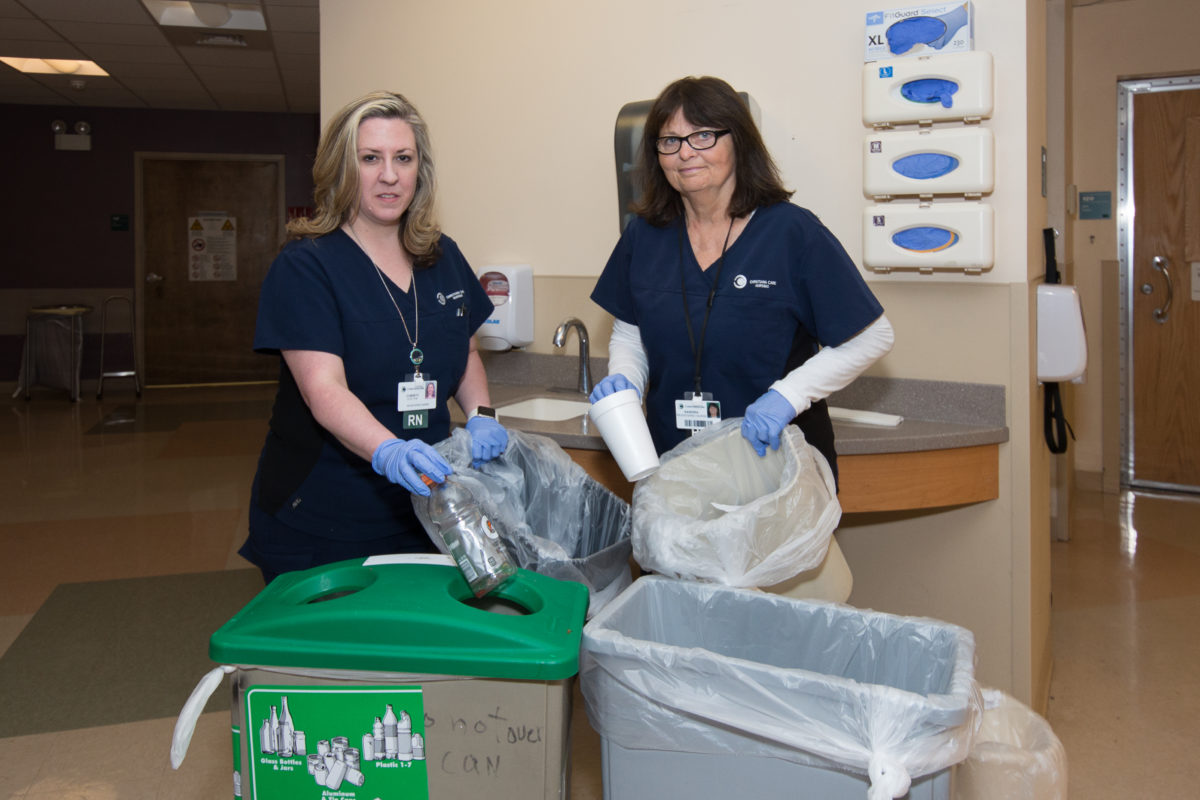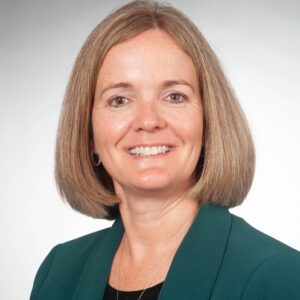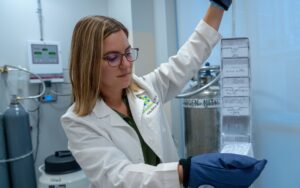Sandra Reddy, BSN, RN, is known to patrol the MRI department, searching for recyclables that have gone astray.
“If I see something that doesn’t belong there, I have a fit,” she said. Her team shares her commitment. “If somebody’s new, they get reminded real fast,” she said.
It’s this type of environmental stewardship that won Reddy’s department the distinction of being a Green Patient Care Area.
The MRI unit is one of 24 patient care areas and offices at Christiana Care Health System to apply for and receive the award in its inaugural year. To qualify, a unit had to achieve 15 of 21 specific actions, such as auditing their waste stream, recycling, setting printers to double-sided default, eliminating plastic foam cups and other items, turning off lights and not using space heaters.
“The purpose of the program is to spread the word and get these green practices used across the organization,” said Bob Mulrooney, vice president for Facilities and Services. “There’s a lot these departments can do.”
The Green Unit distinction, awarded by Christiana Care’s Environmental Stewardship Committee, reflects the health system’s growing commitment to energy efficiency and preserving the environment.
“We’re in the business of health care, and the things we do here can impact the environment and the health of the community,” Mulrooney said. “If we’re not releasing carbon emissions or generating as much waste, we’re not taking up landfill space, they’re not dealing with stuff leaching out. It’s part of our commitment to the community.”
The overarching goal, he said, is to reduce Christiana Care’s environmental footprint by using less energy in general and, in particular, less that is generated from fossil fuels, minimizing waste and encouraging recycling. The health system currently diverts 25 percent of its waste from the landfill, Mulrooney said.
Christiana Care recently installed a 2-megawatt combined heat and power plant at the campus, which captures the heat from generating power and uses it to produce steam and hot waterfor the HVAC system, laundry, kitchen and sterilization processes. In addition to providing clean energy, the natural gas-fired system will pay for itself in four years, Mulrooney said.
The health system also has a power purchase agreement to buy 15 percent of the energy generated by a Pennsylvania wind farm.
Reddy said the MRI Department does its part by instituting an efficient supply-ordering system, using personal mugs, water jugs and utensils, and donating its extra or expired equipment to Christiana Care’s Virtual Education and Simulation Training Center. Staff members also bring in fruits and vegetables from their gardens to share.
“It’s the right thing to do,” Reddy said. “As environmentalists, we like to recycle, reuse and reduce.”
This may be the first time Christiana Care’s Adult Day Program received a Green Unit award, but it’s been employing green practices such as recycling since its inception in 1994.
Program Director Gayle Pennington, MS, MA, NCC, ADC, RSME, who has been with the program since 1996, said being green is second nature to her.
“I grew up with grandmothers who saved everything and reused it,” she said. “A lot of the people who I have in the program miss that time period.”
Part of the program’s dedication to environmentally friendly practices stems from the small staff’s interest, she said. As a practical matter, it’s also necessary.
“We run off a small budget, so we’re always looking for ways to be creative and use what is available to us,” she said.
Staff members also have a garden where they and their clients grow peas, Swiss chard, sunflowers, peppers, tomatoes and green beans. They bring in extra plants and seeds from home and use their crops in salads at lunch.
Pennington said they take the metal rods from old hanging folders to stake the plants. “We’re just really trying to be environmentally aware,” she said.
“We use anything we can find. Reusing materials and being creative is therapeutic for our clients.”



